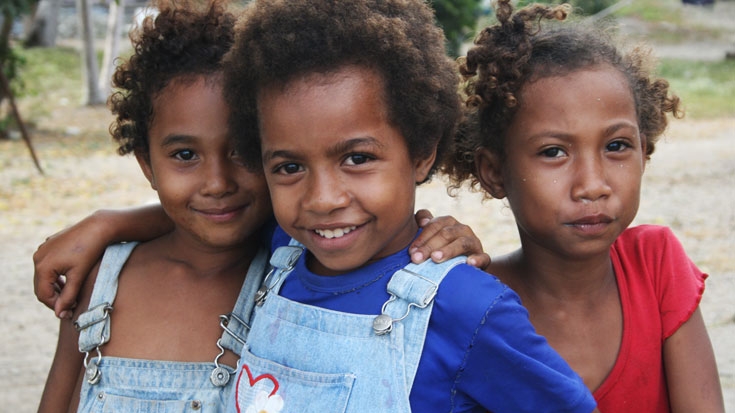Globally, there has been huge progress in expanding access to education, with some 90 percent of boys and girls enrolling in primary school in 2013. But while more children are enrolled in school than ever before, many are repeating grades and learning outcomes too often fall short. In our region, recent assessments of basic reading skills in Vanuatu and Tonga found that up to 70 percent of Year 3 students are struggling to learn to read.
Research shows that many of life’s social and education outcomes can be traced back to the experiences children have or lack from their early years. Early childhood education – such as through access to books, games and family literacy – may have a critical role to play in determining success at school, by helping children develop skills and attributes needed for overall wellbeing and lifelong learning. However, it has often been neglected in conversations about both education and development.
Is there evidence to support greater investment in early childhood care and education, especially in countries where human and financial resources are strained? What role can families and communities play in building children’s learning in their early years, and how can this best be supported? Can experiences from Indigenous communities in Australia be used to inform activities across the Pacific?
Drawing on evidence from Australia and countries around the world, as well as the development of an innovative new pilot initiative in Tonga and Papua New Guinea, we are joined by Raelyn Lolohea ‘Esau, Deputy Director, Ministry of Education and Training, Tonga; Dr Sally Brinkman, Co-Director of Fraser Mustard Centre at the Telethon Institute for Child Health Research; Mary-Ruth Mendel, Co-founder and Chairman of the Australian Literacy and Numeracy Foundation and; Myrna Machuca-Sierra, Education Specialist at the World Bank.
Follow on Twitter: @WorldBankAsia #PacificPraxis
Watch on YouTube: https://www.youtube.com/playlist?list=PL6FE8A490B08CB2DB&feature=plcp
